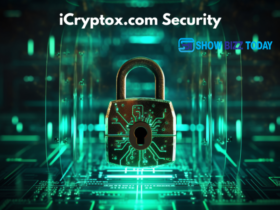The 72 Sold lawsuit has attracted a lot of attention, especially among homeowners and those involved in the real estate industry. With the potential to affect how homes are sold in the United States, it’s essential to understand the details of this case, the complaints raised, and the potential impact it could have on both sellers and buyers. This article will break down the lawsuit in simple terms so anyone, even a 10-year-old, can grasp the core issues.
What Is the 72 Sold Lawsuit?
The 72 Sold lawsuit centers around claims against the 72 Sold real estate company, a business that has gained popularity in recent years by offering an alternative to traditional home-selling methods. The company advertises that it can sell homes in just 72 hours, a bold promise that has attracted many sellers. However, some home sellers and competitors have raised concerns about the company’s practices, which is what led to the lawsuit.
The lawsuit alleges that 72 Sold may have misled consumers by making exaggerated claims about their ability to sell homes quickly and for more money than traditional methods. It is suggested that some aspects of their marketing could be deceptive, potentially giving home sellers unrealistic expectations about the speed and value of their home sales.
Why Is the 72-Sold Lawsuit Important?
This lawsuit is important because it could have far-reaching consequences for the real estate industry, particularly for companies that promise fast or guaranteed sales. If 72 Sold is found to have violated any laws or regulations, it could set a precedent for how real estate companies market their services. The case could also lead to changes in consumer protections, ensuring that home sellers are not misled by unrealistic promises.
For home sellers, the outcome of this lawsuit could impact their decision-making process when choosing how to sell their homes. If 72 Sold’s practices are found to be problematic, it may encourage more sellers to stick with traditional real estate agents or other proven methods.
Who Is Involved in the 72 Sold Lawsuit?
Several key parties are involved in the 72 Sold lawsuit. First and foremost is the company itself, 72 Sold, which is facing the allegations. Additionally, several home sellers who used the company’s services are part of the lawsuit, claiming they were misled by the company’s promises. Some competitors in the real estate industry are also involved, arguing that 72 Sold’s marketing practices have hurt their businesses by creating unfair competition.

Beyond the parties directly involved, the lawsuit has caught the attention of regulators and consumer protection agencies who are looking into whether 72 Sold has violated any state or federal laws regarding advertising or consumer rights.
What Are the Complaints About?
The primary complaints against 72 Sold revolve around false advertising and misleading business practices. Home sellers allege that the company overpromised on the speed and value of home sales, leading them to believe they would get more money for their homes in less time than they did. Additionally, there are concerns about hidden fees and unclear terms of service, which may have left some customers feeling misled or taken advantage of.
Is 72 Sold Breaking Any Rules?
At the heart of the lawsuit is the question of whether 72 Sold has broken any rules. Specifically, the case is looking at whether the company has engaged in deceptive marketing practices or violated any real estate laws. While the court has not yet made a final ruling, the allegations suggest that 72 Sold may have crossed legal boundaries when promoting its services.
What Could Happen Next in the Case?
As the case moves forward, there are several possible outcomes. If the court finds that 72 Sold has violated the law, the company could be forced to pay fines, compensate affected home sellers, or even change its business practices. On the other hand, if 72 Sold successfully defends itself, the company may continue operating as usual. However, regardless of the outcome, the case will likely influence how real estate companies market their services moving forward.
What Does the Court Say About the Lawsuit?
At this stage in the lawsuit, the court has not yet issued a final decision, but several preliminary rulings have been made. The court has allowed the case to proceed, indicating that the claims against 72 Sold have enough merit to be heard in full. However, the legal process can be slow, and it may take months or even years before a final ruling is reached.
In the meantime, the court has encouraged both sides to consider settling the case out of court, a common step in civil lawsuits. Whether or not a settlement will be reached remains to be seen, but the case’s outcome will likely have implications for both the real estate industry and consumers.
What Home Sellers Should Know About the 72-Sold Lawsuit
If you’re a home seller, the 72 Sold lawsuit should serve as a reminder to be cautious when choosing a company to help sell your home. While the promise of a fast sale can be tempting, it’s essential to read the fine print and understand the terms of any agreement before signing on. Sellers should also compare multiple options to ensure they are getting the best deal and not being misled by flashy marketing promises.
Before working with any company that offers guarantees or fast sales, it’s a good idea to ask questions, do your research, and talk to a real estate professional who can offer guidance. Understanding the risks and benefits of different selling methods is crucial to making an informed decision.
Could This Lawsuit Change How Homes Are Sold?
The outcome of the 72 Sold lawsuit could lead to significant changes in the way homes are sold, especially when it comes to marketing and advertising. If the company is found to have engaged in deceptive practices, it could lead to stricter regulations on how real estate companies can promote their services. This might result in more transparency and honesty in the industry, which would ultimately benefit consumers.

What Can Home Buyers Learn from This?
Home buyers can also take away some important lessons from this lawsuit. Just as sellers need to be cautious about fast-sale promises, buyers should be aware that some properties might be marketed with unrealistic expectations. Before making any offers, buyers should do their own research, work with a trusted real estate agent, and ensure that the home’s price reflects its true market value.
Are Other Companies Facing Similar Lawsuits?
The real estate industry is no stranger to lawsuits, and 72 Sold is not the only company facing legal challenges. Several other real estate firms have been sued for similar issues, including allegations of false advertising, deceptive practices, or failure to deliver on promises. These cases suggest that there is a growing trend of consumers pushing back against companies that they feel have misled them.
What Does This Mean for Future Home Sales?
Looking ahead, this lawsuit could have a significant impact on the future of home sales. If 72 Sold or other companies face consequences for deceptive practices, it could encourage more transparency in the industry. This could ultimately lead to a shift in how homes are marketed and sold, with a greater emphasis on accuracy and honesty.
What Should You Do If You’re Involved in the 72 Sold Lawsuit?
If you’re a home seller involved in the 72 Sold lawsuit, it’s important to stay informed about the case and your rights. Consulting with a legal professional can help you understand your options and what steps you should take next. Whether you’re seeking compensation or simply want to know how the lawsuit might affect you, working with a lawyer can provide you with the clarity and guidance you need.
The Bottom Line
The 72 Sold lawsuit is a significant case that could impact the real estate industry for years to come. While the outcome is still uncertain, the case raises important questions about how homes are sold, how companies market their services, and what protections consumers have. Whether you’re a home seller or buyer, staying informed and doing your research is key to making the best decisions for your situation.
By keeping an eye on the lawsuit’s progress and being cautious when dealing with real estate companies, you can protect yourself from misleading promises and ensure that you get the best deal possible.














Leave a Reply